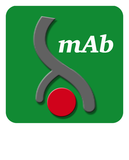
Catalog # RM2891
A-Raf (N-terminal region) Antibody
Mouse Monoclonal
| ELISA | 1:2000 |
| WB | 1:1000 |
Size 100 μl
Species Reactivity Hu, Rt, Ms
MW 68 kDa
Isotype IgG1
The Ras-Raf-MAP kinase signaling pathway is involved in control of cell proliferation and differentiation. The Raf kinase family includes A-Raf, B-Raf, and C-Raf. Each family member has three highly conserved regions (CR1-3). The N-terminal CR1 contains the Ras-GTP-binding domain. The CR2 contains a negative regulatory serine residue (C-Raf (S259)/B-Raf(S365)) that may bind 14-3-3 proteins. The CR3 is the catalytic domain that contains phosphorylation sites for Raf-regulating enzymes within two segments, the N-region and the activation segment. Activation of C-Raf involves phosphorylation at many sites including Ser-338, Tyr-341, and Ser-471. The latter site is phosphorylated after EGF stimulation and may be important for MEK interaction in both C-Raf and A-Raf. In B-Raf, multiple phosphorylation sites have been identified, but their specific roles are uncertain. Phosphorylation of Ser-446 may prime B-Raf for activation, and Ser-446 and/or Ser-447 phosphorylation may be critical for B-Raf biological activity during PC12 differentiation. Ser-579 is required for growth factor activation and kinase activity.
References
Mason, C.S. et al. (1999) EMBOJ 18(8):2137.
Baljuls, A. et al. (2008) J Biol Chem 283(40):27239.

Western blot of human Jurkat cell lysate. The blot was probed with mouse monoclonal anti-A-Raf (N-terminal region) antibody at 1:500 (lane 1) and 1:2000 (lane 2).
*For more information, see UniProt Accession P10398
The products are are safely shipped at ambient temperature for both domestic and international shipments. Each product is guaranteed to match the specifications as indicated on the corresponding technical data sheet. Please store at -20C upon arrival for long term storage.
*All molecular weights (MW) are confirmed by comparison to Bio-Rad Rainbow Markers and to western blot mobilities of known proteins with similar MW.
This kit contains:








































